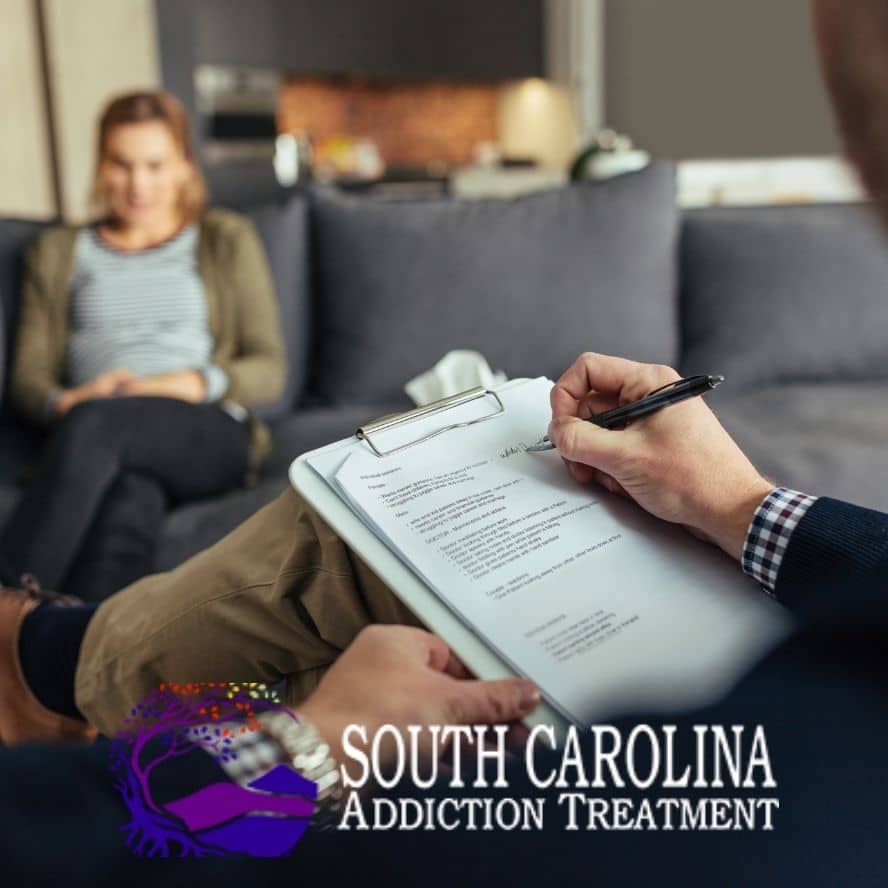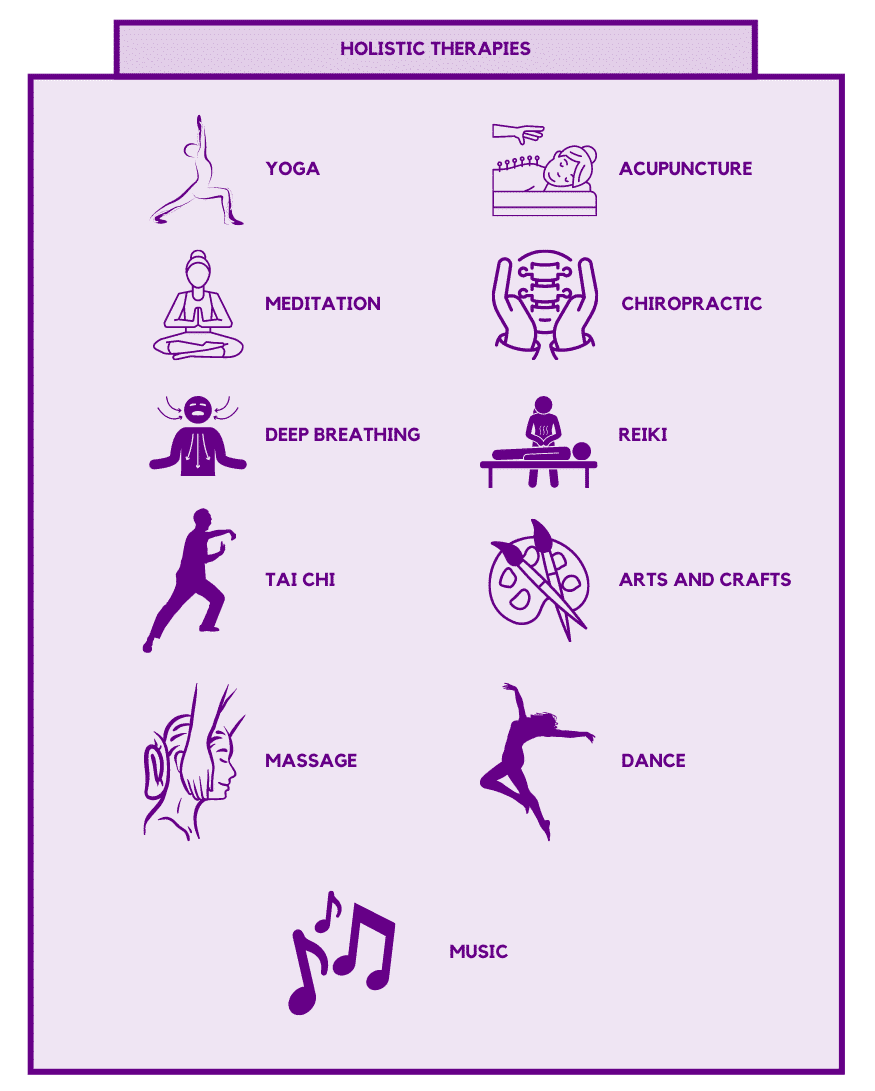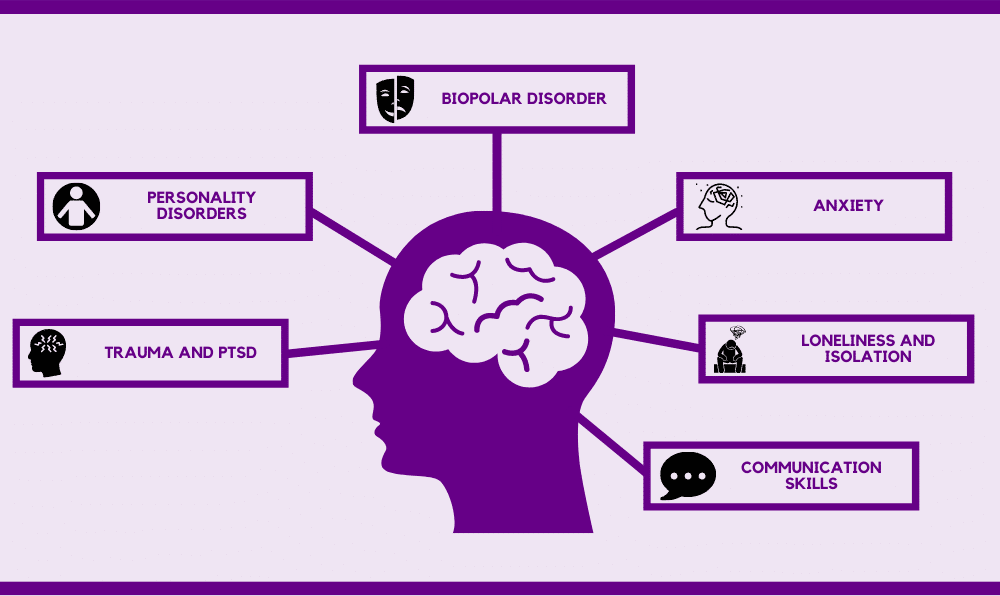Addiction Treatment Therapies Practiced in South Carolina

Medically Verified: 2/1/24
Medical Reviewer
Chief Editor

All of the information on this page has been reviewed and verified by a certified addiction professional.
Addiction is a complex and multifaceted disease that requires comprehensive and individualized care. No singular treatment approach or therapy technique can fully cure addiction. However, there are many therapies used in addiction treatment in South Carolina that can help patients overcome their drug and alcohol use. Let’s take a look at the different types of therapy offered at drug and alcohol rehab.
Behavior Therapy and Talk Therapy
Behavioral therapy, sometimes referred to as talk therapy or psychotherapy, can help patients remain in treatment longer, change their attitudes and behaviors, and stay sober.[1] There are many different kinds of behavioral therapy that may be used in addiction treatment. Here are 5 of the most common.
1. Cognitive Behavioral Therapy (CBT)
CBT therapy helps patients identify and correct their problematic behaviors. This approach teaches patients a range of different skills that can help prevent relapse. CBT helps patients anticipate potential problems, improve self-awareness and self-control, and implement healthy coping strategies. This is one of the most commonly used behavioral therapies used in addiction treatment in South Carolina.
2. Dialectical Behavior Therapy (DBT)
DBT is a form of CBT that was originally designed to help treat people who were suffering from suicidal thoughts. However, it can help promote mindfulness, stress reduction, healthy relationships, and self-awareness. As a result, DBT is often used to help treat dual-diagnosis patients.
3. Contingency Management (CM)
CM is an approach that gives patients tangible rewards for their positive behaviors and milestones in treatment. This is an incentive-based approach that can help improve treatment retention rates and promote long-term abstinence.
4. Rational Emotive Behavior Therapy (REBT)
REBT is very similar to CBT as it helps patients identify negative beliefs and thought patterns that cause them distress. Once these thought patterns are identified, REBT focuses on replacing unhealthy beliefs with more logical ones.
5. Motivational Interviewing (MI)
MI is a counseling technique where substance abuse counselors try to help clients identify their intrinsic motivations and values. This approach is thought to help patients stay motivated to continue their sobriety. MI can improve treatment retention rates and reduce the likelihood of relapse. It can also increase patient participation in the other therapies offered at addiction treatment in South Carolina.
Holistic Therapies Practiced at Addiction Treatment Centers in South Carolina
Holistic therapies take a complementary approach to addiction treatment. They are often used alongside the previously-listed behavioral therapies. Holistic therapists view their patients as a “whole,” treating their mind, body, and spirit simultaneously through a range of different activities. The idea is that all parts of the human system work together and are capable of healing and self-regulation. While these therapies are not religious, many people consider them to be spiritual.
Examples of holistic therapy include:

- Yoga
- Meditation
- Deep breathing
- Tai chi
- Massage
- Acupuncture
- Chiropractic
- Reiki
- Arts and crafts
- Dance
- Music
These activities are facilitated by a licensed therapist who can help patients work through the activity and cultivate inner healing. While holistic therapy is not intended as a sole treatment method for addiction, it is commonly incorporated into addiction treatment programs in South Carolina.[2] Holistic healing methods can help patients relax, cope with cravings, deal with stress, and find new hobbies.
Group-Specific Therapies
Everyone who suffers from addiction has unique experiences of their own that define who they are, what they struggle with, and what their future has in store. Addiction treatment centers in South Carolina provide therapies on a group and individual basis, however, there are certain issues that are very common among people who suffer from addiction. And, these issues can be addressed in group-specific therapies. Therapies like these that bring like-minded patients together to discuss issues personal to them can help patients heal from these issues, develop meaningful relationships, and feel more confident in themselves.
Gender-Specific Therapy
Gender-specific therapy breaks men and women up into separate groups. Men and women experience addiction differently and have different needs in recovery. For instance, women and men tend to use substances for different reasons. Women tend to get addicted faster and are more likely to be the victim of sexual violence. Men, on the other hand, are more likely to binge on substances and struggle to share their feelings and emotions in therapy.[3] By separating the two genders, therapists can create a safe and compassionate environment where they can address gender-specific issues.
Family Systems Therapy
Family therapy (or couples therapy) is designed to bring families or loved ones together to address their shared problems. Addiction is a disease that often affects the entire family and their relationships. Family therapy aims to restore balance, trust, and healthy communication within the family unit.
Mental Health Counseling
Nearly half of people who enter treatment for substance abuse also meet the diagnostic criteria for a mental health condition.[4] As a result, it’s important to address these mental health issues in treatment. Mental health counseling groups can focus on many different topics, including:
- Trauma and PTSD
- Personality disorders
- Depression and bipolar disorder
- Anxiety
- Loneliness and isolation
- Communication skills
Mental health therapies are offered at addiction treatment centers in South Carolina to help patients get their lives under control and prevent relapse. If a mental health issue goes ignored, there’s a good chance it will eventually jeopardize a patient’s sobriety.

12-Step Facilitation Therapy
12-Step facilitation therapy is an approach that encourages patients to accept that abstinence is the only solution, surrender to a Higher Power, and participate in a 12-Step fellowship like Alcoholics Anonymous (AA) and Narcotics Anonymous (NA). Therapists use this approach to incorporate principles of the 12-Steps into regular treatment to begin getting patients familiar with the 12-Step recovery model.
Get Started With Addiction Therapy at South Carolina Addiction Treatment
Intensive therapy can help make the detox and treatment process more comfortable and productive. Therapy teaches people in recovery how to cope with their emotions, deal with obstacles in life, and maintain lasting sobriety.
At South Carolina Addiction Treatment, we utilize a variety of addiction treatment therapies to set our patients up for success. To learn more about our drug and alcohol rehab program or to enroll yourself or a loved one, pick up the phone and call us today.
References:
- https://www.drugabuse.gov/publications/principles-drug-addiction-treatment-research-based-guide-third-edition/evidence-based-approaches-to-drug-addiction-treatment/behavioral-therapies
- https://www.ncbi.nlm.nih.gov/pmc/articles/PMC3068720/
- https://www.drugabuse.gov/publications/research-reports/substance-use-in-women/sex-gender-differences-in-substance-use
- https://www.drugabuse.gov/publications/research-reports/common-comorbidities-substance-use-disorders/part-1-connection-between-substance-use-disorders-mental-illness

